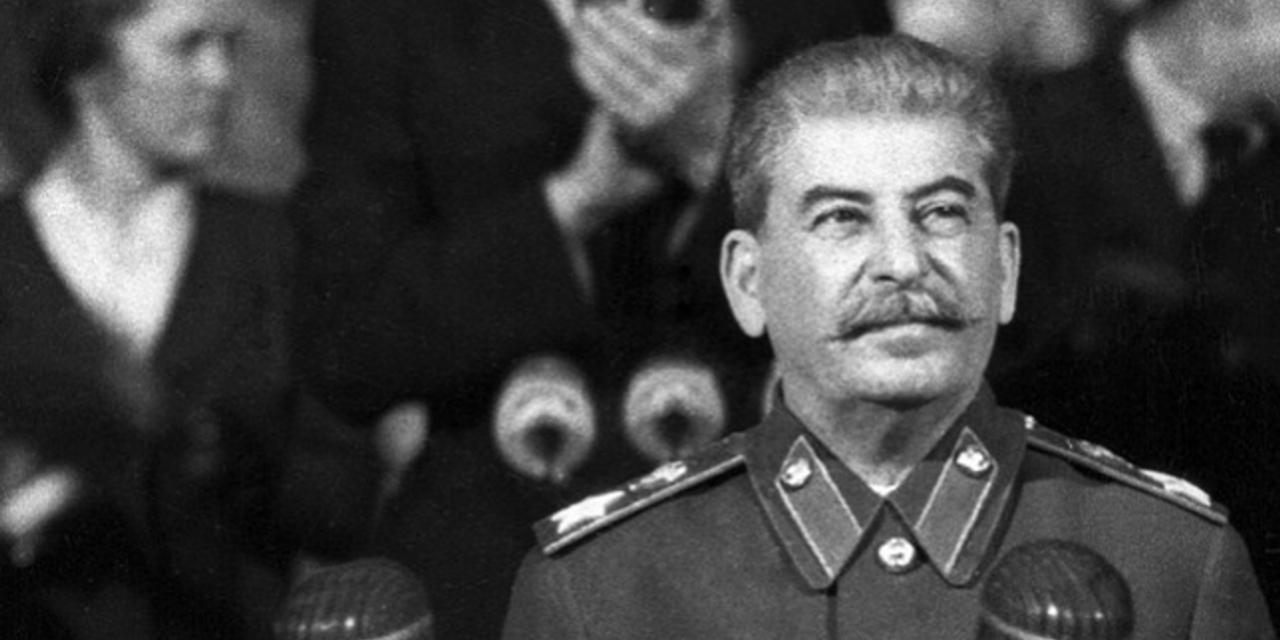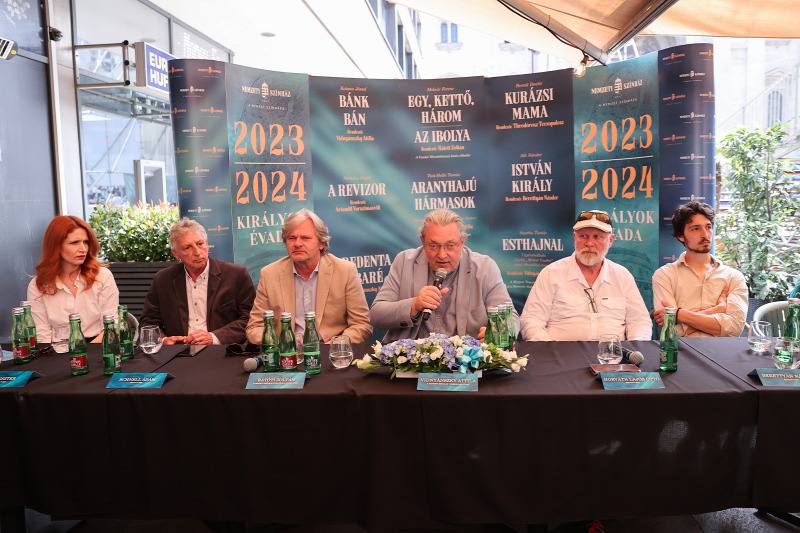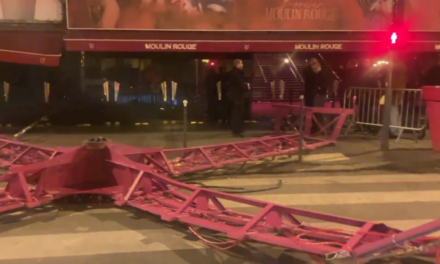"A nation that does not know its past does not understand its present, and cannot create its future!"
Europe needs Hungary... which has never let itself be defeated.
Preface
I am neither pro-Russian, nor pro-Ukrainian, nor anti-Western. It is simply guided by how which country and which power grouping have treated Hungary throughout history. Despite the fact that our country never intended to harm anyone. Anyone who wants to can see this today.
Western Europe, Central Europe, Russia
I have been thinking for some time whether history is repeating itself, dressed in new and ever new clothes, or is it already over? Of course, I am not referring to the great mistake of Francis Fukuyama's work entitled: The End of History, but to the 19-20-21. to the world-changing events of the 20th century. This is the period when the rapid development of technology makes it possible (it did) to present the events of the past not only with paintings, sculptures, buildings, and objects. Photos, films, and audio recordings are now much more authentic documents, which of course can now also be faked professionally. Below I present only "evidence" that no one can think of as fake. Because there is no point in changing the already well-known facts.
A person thinks about the age he is living through, what he experiences, what he tries to consciously evaluate, knowing the relevant events of the past, that similar tragedies of the past cannot be repeated. Now, for example, we cannot yet believe - unfortunately we can already imagine - that the Third World War would break out. I will not repeat the well-known pro and con debates of political scientists and analysts. Although in some places it is unavoidable to show parallels between the past and the present. It doesn't hurt to quote of Frigyes Engels , with which one could even agree: "If history repeats itself, it creates a farce of itself!" Could it be argued that it really is a farce?
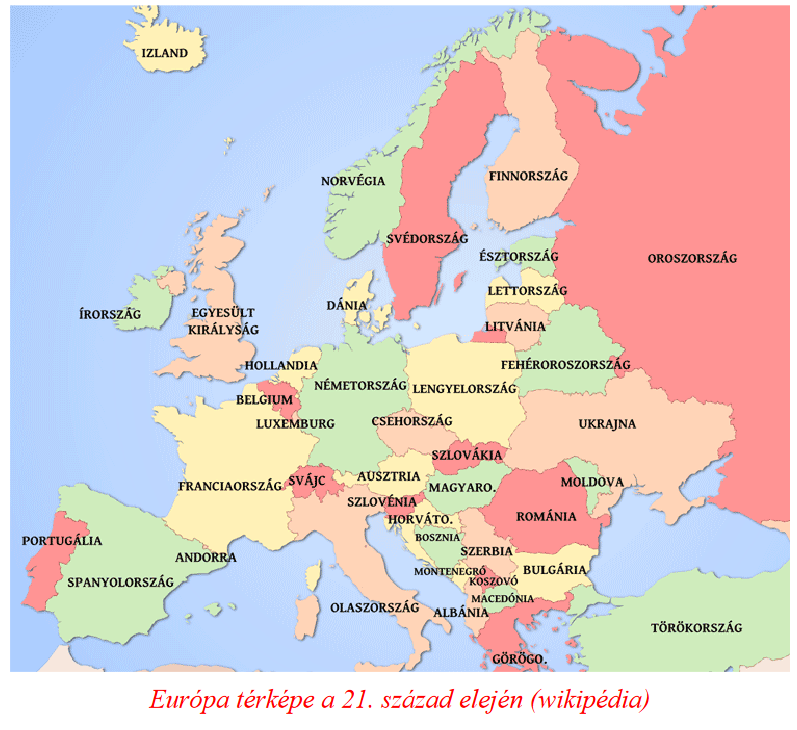
A walk among London's sculptures
Walking in St James's Park, among the countless statues, three famous English historical figures stand one after the other on their pedestals. Let's start with the first in historical order, Lord Palmerston . After that comes the unforgettable figure of Lloyd George Winston Chuchill . A tourist coming from any part of the world, but we can even include local residents, would not think of these three statues - moreover, lined up one after the other - as a Hungarian would. Well, let's not exaggerate, to one out of a thousand Hungarians. (Unfortunately or fortunately, I am one of them.)
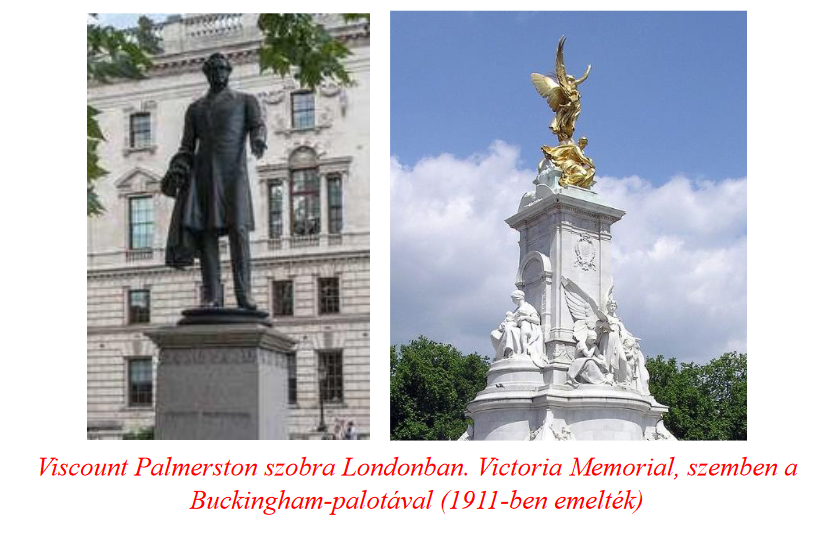
Palmerston's name sounds familiar in connection with the events of the 1848/1849 Hungarian War of Independence. Elected as foreign minister for the third time in 1846, Palmerston did not maintain good relations with Queen Victoria (1837-1901) and her German husband, Albert, a scion of the Saxe-Coburg-Gotha house. Palmerston's position as foreign minister until 1851 gave him the right to have a say in the Hungarian war of independence. Although he recognized the legitimate struggle of the Hungarians, England needed the Habsburg Empire, so he did not support the cause of the Hungarians. "Meser Pál" , as the Hungarians called him, also gave his blessing that Vienna could even call in Russian troops to defeat the Hungarian freedom struggle, as long as the Habsburg Empire remained united. The two-faced nature of English democracy was already evident then. Due to his high degree of independence, Palmerston was later replaced, all the more so because Queen Victoria – like her glorious predecessors – considered the Foreign Office a royal prerogative.
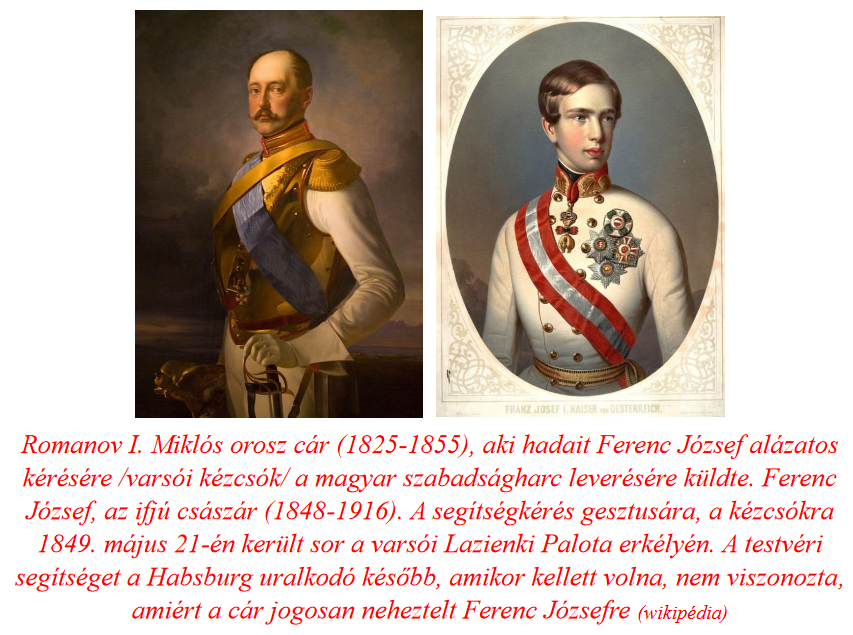
The relationship between the West and Russia in the 19th century
Palmerston even played a role in the political process of the Crimean War (1853-1856) , even though he was no longer Foreign Secretary. The biggest war event of the relatively peaceful one-hundred-year period between 1815-1914 was the Crimean War with the loss of nearly one million people The series of Russian-Turkish conflicts has already preoccupied the leaders of the great powers of the region and Europe. From the middle of the 19th century, Czar Nicholas I wanted to achieve the acquisition of a commercial and military sea exit from the Black Sea to the Mediterranean Sea, as well as the recovery of the Orthodox Church of Jerusalem from Islamic Turkey. At first, English foreign policy supported an alliance with the Russians. The British, who colonized half the world, wanted to participate in the division of the territory of the Turkish Empire (the "sick man" of Europe). England and France finally decided to support the Turks. The Western powers of Europe have always been concerned with Russian expansion, which they wanted to prevent. Even then, the rumor spread that the Russians were to be feared. The West was only afraid, and Central Europe suffered from Russian intervention. Of course, the Russians only ever caused trouble if they did not act according to Western interests. Most of the time they were called and attacked the country. (Napoleon's campaign, the Hungarian War of Independence in 1849, the Crimean War, the Polish-Russian conflicts, Hitler's attack, the Soviet system.)
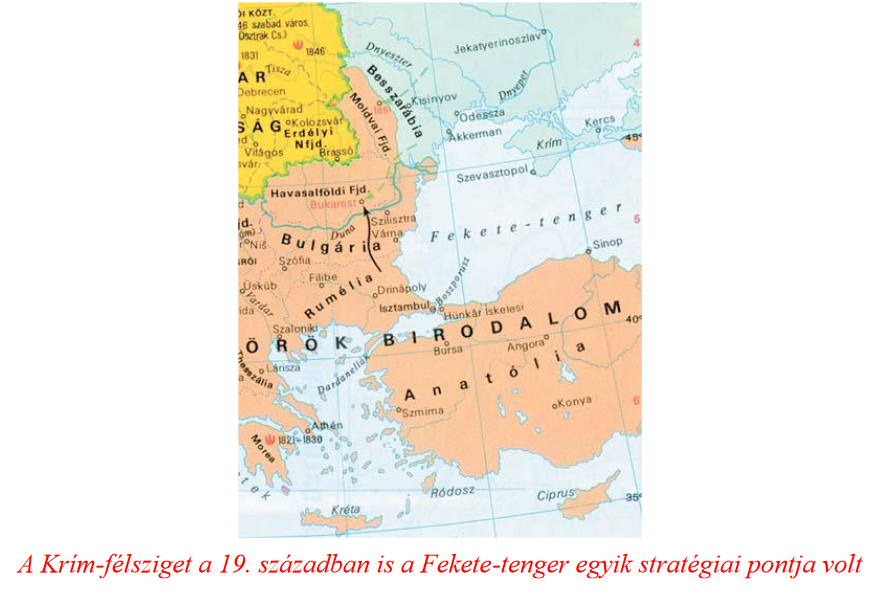
Czar Miklós was surprised by the decision of the Western powers to side with Turkey. But the fact that József Ferenc didn't stand by him, and that he didn't send soldiers, he took as a mean breach of his word. He declared that: "I would rather leave Poland, set her free, than forget the treachery of the Austrians." After all, in exchange for the help provided against the Hungarians in 1849, Vienna would have been obliged to repay the "loan". Tsar Miklós declared war on the Ottoman Empire. The Turks were still dominant the the Russians in the Caucasus and at sea. This was proven by the first major naval battle, when the Russians destroyed the Turkish fleet off the coast of Sinop. The British and French fleets immediately appeared in the straits to support the Turks, but more to cut off Russian access to the Mediterranean.
In November 1853, the Russian fleet sank the rest of the Turkish fleet in another battle. The powers of Western Europe granted Turkey a quick loan of two million pounds and then sailed into the Black Sea. (There is nothing new under the sun!) The Christian powers of the West, because their interests so desired, supported the Islamic power Christian Russia of the East. The Russo-Turkish conflict thus expanded into a European war.
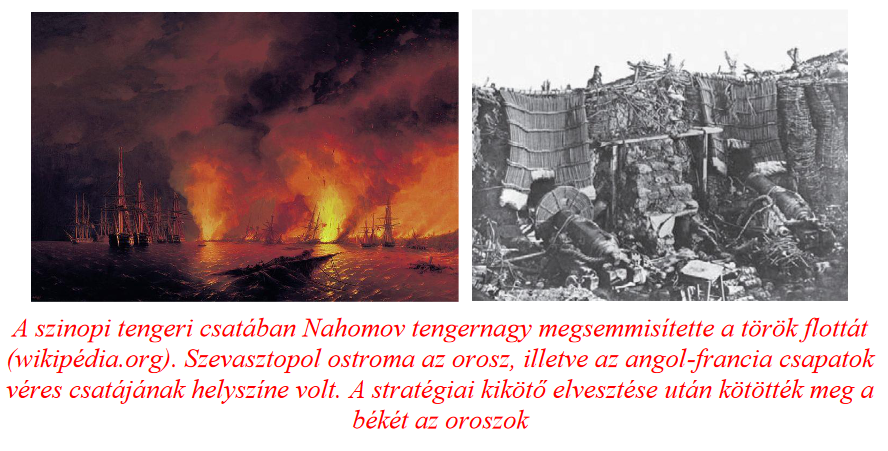
The central and western half of Europe - with the exception of the fraternal Serbs and one or two Slavic peoples - have been afraid of the Russian bear since the Middle Ages, Russia was the mummy in their eyes. Except, of course, for those cases - for example, the First and Second World Wars, the suppression of the Hungarian and Polish revolutions - when the West did the dirty work with the Russians at the cost of millions of lives. (Isn't it a coincidence that the titles of the current chapters are: Is history the teacher of life? ) Because now /2024. we are writing March/ as if a forgetful or taken-for-pound Europe would once again walk into this self-destructive carnage.
Back to Palmerston and his politics. The saying can be attributed to him, which had already defined the secret of England's world-conquering success, and the politicians who followed him acted accordingly. The sentence reads: "England has no eternal friends, England has no eternal enemies, England has interests." The sentence expressing the political, economic, cultural and historical aspiration sounds like this in English: "We have no eternal allies, and we have no perpetual enemies. Our interests are eternal and perpetual, and those interests it is our duty to follow.” (March 1, 1848) It should be noted that England should be understood as the United Kingdom (László Szabó's legitimate interpretation.)
The "flexibility" of the English is proven by an incident that also showed Palmerston's friendly side. When Lajos Kossuth, with whom Palmerston sympathized by the way, landed in Southampton in 1851, an invitation from the English Foreign Minister was already waiting for him at the port. It is true that he could not receive the leader of the rebellious Hungarian people in his own house, but this was progress compared to Ferenc Rákóczi's "reception" 139 years earlier. Fleeing the Baltic and North Seas, the Great Prince reached the shores of England at the end of 1712 after a difficult sea journey. Based on the decision of British diplomacy (Great Britain already existed since 1707), they did not allow the rebellious Hungarian prince to disembark in the port of Hull. Thus, on January 7, 1713, the St. George ship carrying the Hungarians set sail and left for another land of freedom, French soil. But he could not stay there for long either, because the Habsburg Empire was more important to the West than Hungary, which was constantly striving for independence. I'm thinking hard! Maybe this theorem is still true today?
Let's spend a few lines on how the news sources of Europe and America, considered the cradle of civilization, treat the Russians. The way the Russians have been described for centuries, and the way, for example, the role of cruel criminals is assigned to them in the American films being made today, is worth scrutinizing. Half true, half not. Their presentation in the 19th century was truly alarming, and it is no coincidence that the peoples of Europe were afraid of them. Savage people who tear the child from its mother's bosom, kill the men, and dishonor the women. The Russians are bringing a new Tatar style to Europe. (We could talk about the brutalities of the Ra and the Olachians, that was much more true. The Muska are indeed a rough, half-savage, robber people, but they are not bloodthirsty or cruel. It is true that whatever village or town they occupied, whatever food they found there they took it, that was their salary. But the prisoners were treated fairly, as befits a soldier. In 1849, if Paskkevics had not intervened, many more executions and mass murders would have befallen the Hungarians. The cultured Vienna set up the Arad gallows and shot Batthyány Lajos . I like that they learned a thing or two from the cruelties of the Jacobins. (The description that spread in the 19th century about the Tsarist Russians, even if it was not true at the time, was unfortunately true for the communist Soviet army that invaded in 1944. )
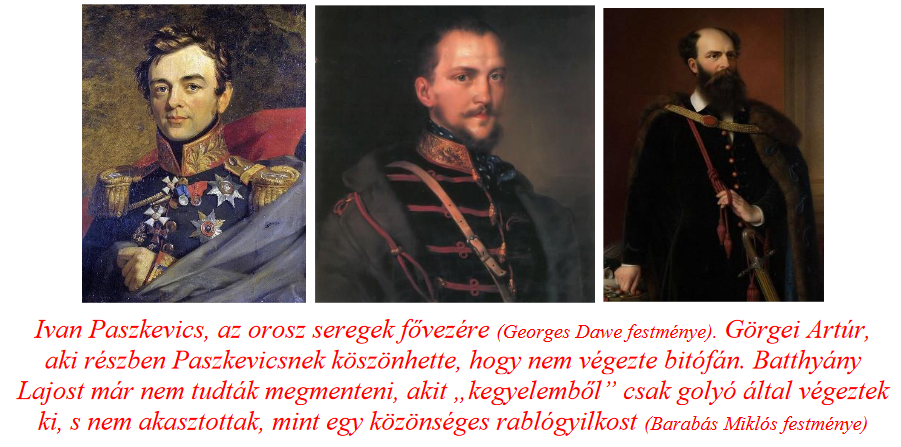
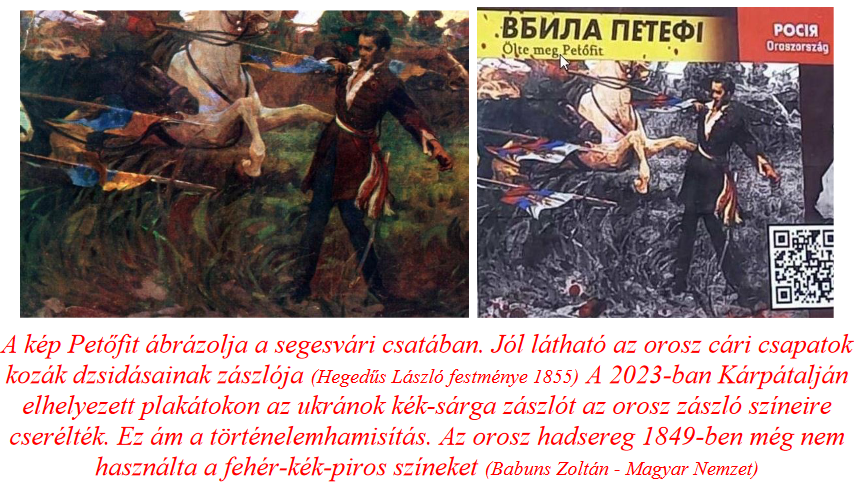
According to Róbert Herman, Paszkevics advised József Ferenc and his entourage to give the Hungarians a broad amnesty, as this is the only way to reconcile them. The Habsburgs did not accept the advice of the Russians. After the executions, the tsar did not receive the Austrian envoys for weeks to express his displeasure at the barbaric and unjust executions. The tsar saved Görgei's life by telling the emperor that if they wanted to execute him - and they did - he would take him with him to Russia. This is how the "main culprit" Görgei was pardoned. Russian troops did not terrorize the civilian population, but they even protected them in certain situations.
(However, let's go back in time about four decades.)
The great Napoleon and the little Macron
An obvious topic, an unmissable historical parallel in the spring of 2024. I will not go into the details, as anyone can find out from the multitude of sources. It is only because of such an almost irresponsible and unscrupulous disregard of history that I draw a parallel between two centuries of Russo-French politics. Of course, this leaves everyday analysts cold, as the situation is different today. Of course it is different, for example there is an atomic bomb. Well, which of the indicated states does not have it?
And then let history come. Napoleon Bonaparte reigned as Emperor of France from 1804 to 1814, i.e. for ten years. Emmanuel Macron was elected President of France in 2017 and was re-elected for a five-year term in 2022. Macron will be president until 2027 if "all goes well". Thirdly, it is no longer possible to elect him as president, which may be one of the main reasons for his "directed courage".
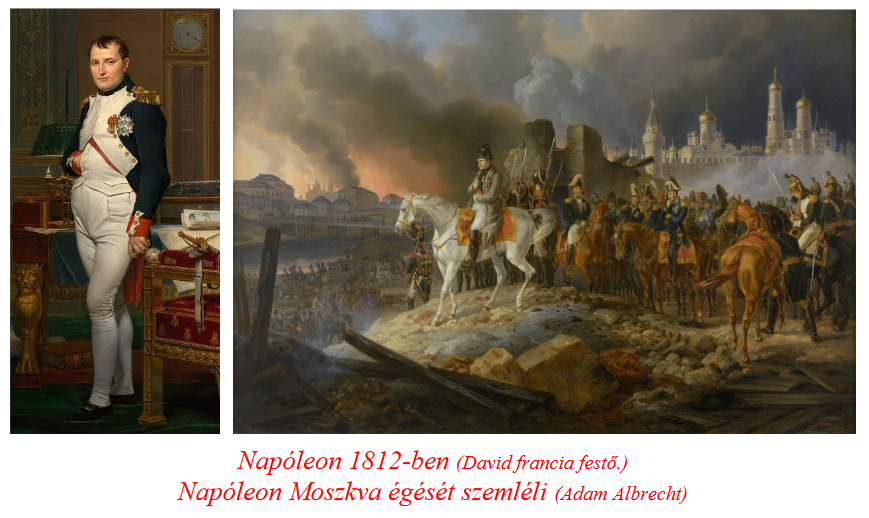
Napoleon wanted to conquer all of Europe, and at first he won brilliant victories. Except for the sea battle of Trafalgar (near Gibraltar) in 1805, in which the English admiral Nelson won a brilliant victory. Napoleon did not understand naval warfare, but he was not capable of commanding land armies. He was a military genius. Macron wasn't even a soldier, he doesn't have the faintest idea about the honor of the uniform, and he has absolutely no idea what it means to live and die on the battlefield. It is true that two centuries have passed since Napoleon, but the essence has not changed.
(The relationship of the country of French great power arrogance, good-smelling perfumes and fashion to the "barbaric East" has not changed. But neither has the fact that Napoleon at the time and the French presidents in power two hundred years later are also supported by the Rothschilds.)
Let's stick to the hard facts as they appear in the history books. Napoleon prepared it in the seventh year of his reign, and then attacked Russia in 1812. We know the outcome. He led the well-equipped and trained French army of half a million, the best of the country's male population, to the slaughterhouse. According to historical reports, only 20,000 people returned home to France from the Russian snowfields.
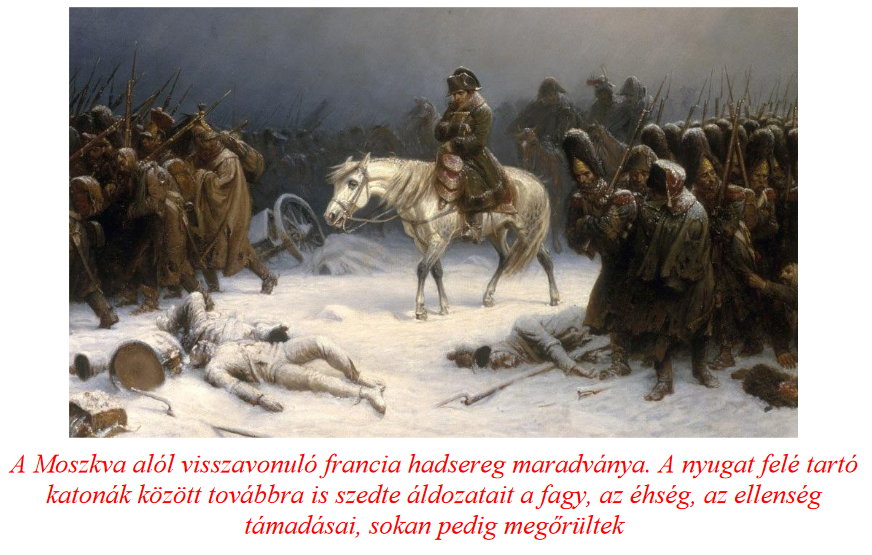
In the seventh year of Emmanuel Macron's presidency, he started threatening Russia to attack him. At the moment, the messages, the words of the world's important and less important politicians are going on. Who knows what the next year will bring? You can know one thing for sure, you don't need great fortune telling. The Russian forces will finish off the French soldiers arriving on the battlefield. They will be hunted with distinction. If the Germans were to go there, they would be exposed to even more attention. (We hope we don't have to earn this.)
Let's stick with what has already happened. The great powers of Western Europe united against the retreating Napoleon, because they were determined to defeat the dictator. Napoleon originally wanted to occupy Berlin with his rebuilt army. But the decimated French armada on the Russian battlefield was no longer so formidable, and former allies also broke with Napoleon. The big clash took place in Leipzig in 1813. In the "battle of the peoples", the 300,000-strong force of the Austrian-Prussian-Swedish-Russian troops defeated the French ruler. However, the stubborn Corsican was still unable to give up his great power ambitions.
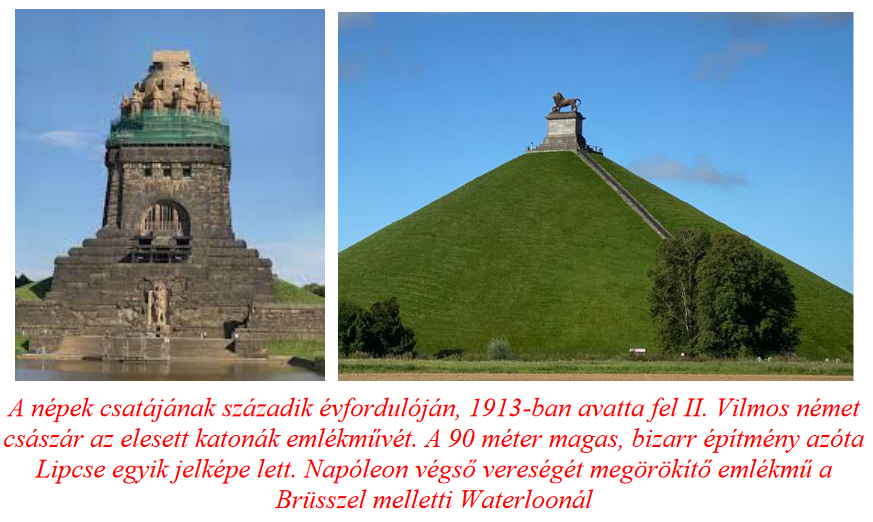
After Leipzig, the emperor was exiled to the island of Elba, from where he returned in 1815. Nimbusza still lived among the French. He was able to gather another army around him, and Napoleon's 100-day reign began. The brief brilliance was put an end to in 1815, on the field of Waterloo near Brussels, by the united British and Prussian army. One of the greatest figures in universal history died on the remote island of Saint Helena in 1821.
It is worth recalling the balance of history here. The French Jacobin dictatorship took shape in Napoleon in order to become the leading power in Europe. Defeated or friendly European states sided with France. However, over time, it proved to them again that Russia cannot be defeated. Then the French were finished off by their own Western European "friends", but rather rivals, Germany and England, and in no other place than in Brussels. The analogy is more than interesting.
(Hitler didn't learn from history either, he attacked Russia, the Soviet Union at the time, and what was the end? A total defeat, which then dragged the great Germany into the abyss. And the West still hasn't learned, moreover, it has become soft, completely misinformed, NATO its people depend on its military power, that Russia cannot be defeated. It would only be possible if they too, I mean the Russian people, became zombies. But they won't! The "people's soul" and religion are still alive in them. That's when people are told that they are Putin's pet that he does not understand the world, that he is not democratic and the rest.
The formula is much simpler, think about it for everyone who is still interested in the fate of their country and family. Maybe look up who financed Hitler and pushed him into the second world fire that killed fifty million people. What was not even a second war was a continuation of the first war with two decades of preparation. I note that this preparation and financial support is related to the inviolability of Switzerland and Swiss banks, as well as the financing background work of Wall Street and the City of London. There is a concept for this, the Hitler mystery. You can watch it afterwards, it's no longer a secret what this means.)
The First World War (1914-1918)
Exactly one hundred years passed after the fall of Napoleon, when the great powers saw fit to divide the world again. The Great War, as the First World War was called, was already a war of machines. It was during these years that arms companies first deployed the machine gun, mortar, war gas, long-range cannon, tank, submarine, minelayer, torpedo, radio, electric wire, fighter jets, and many other weapons of mass destruction. weapon. A hundred years from now, in 2014-2024, these weapons listed above will be toys compared to the ones that can be used to destroy people today.
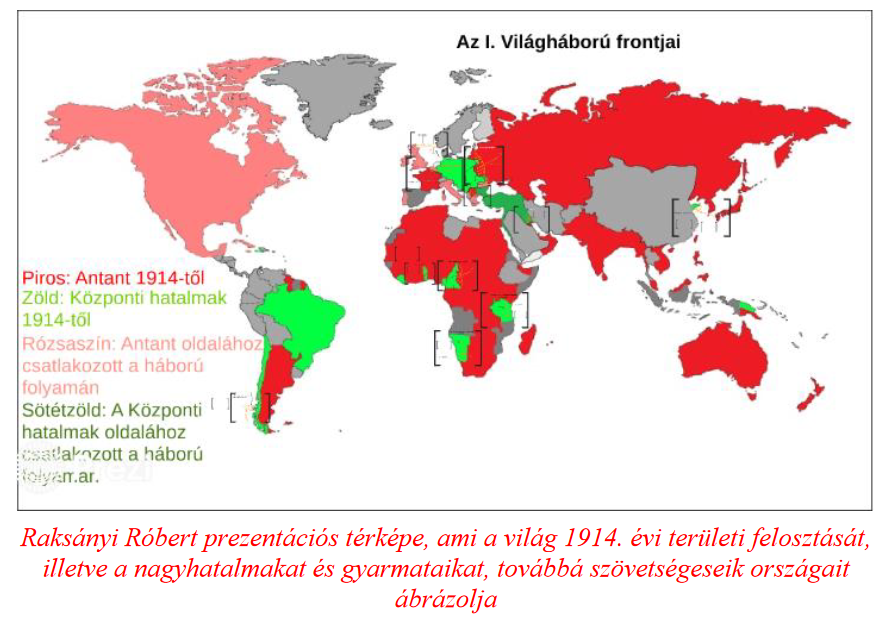
Let's stick to the events of the First World War that affect our topic, i.e. the relationship between Europe and Russia within it. For this, you need to know the sketchy history of the alliance between the Central Powers and the Entente.
The goal of the Central Powers (German Empire – Austro-Hungarian Monarchy Italy – Ottoman Empire – Bulgaria) was to suppress France. It is based on the tripartite alliance created in 1882 by Germany, the Monarchy and Italy.
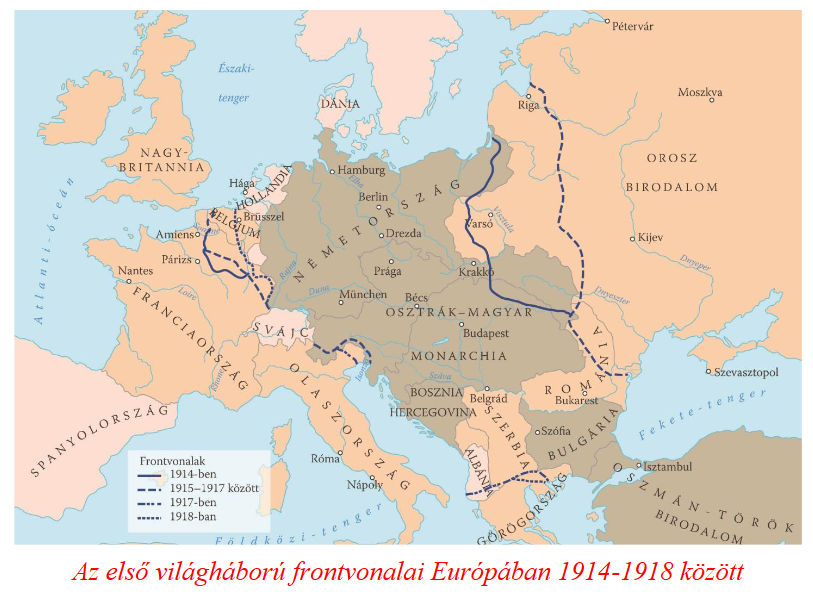
Is the map fake or what happened? Where is Italy? It was not the first time in history, nor the last time, that the Italians switched sides at the decisive moment, at the beginning of the war, in this case to the side of the Entente. This caused the suffering and death of thousands and tens of thousands of Hungarian soldiers on the murderous battlefields of the Alps. The other country that changed allies several times was Romania. Romania, politicizing in all colors of the rainbow, has achieved not only Hungary's loss of life, but also the unprecedented territorial abduction of our thousand-year-old country. Of course, it should be known that they were controlled from the strongholds of democracy. The Romanians had and still have only one policy. At the best moment, stand on the side of the winners, make few sacrifices, and enjoy the benefits of victory.
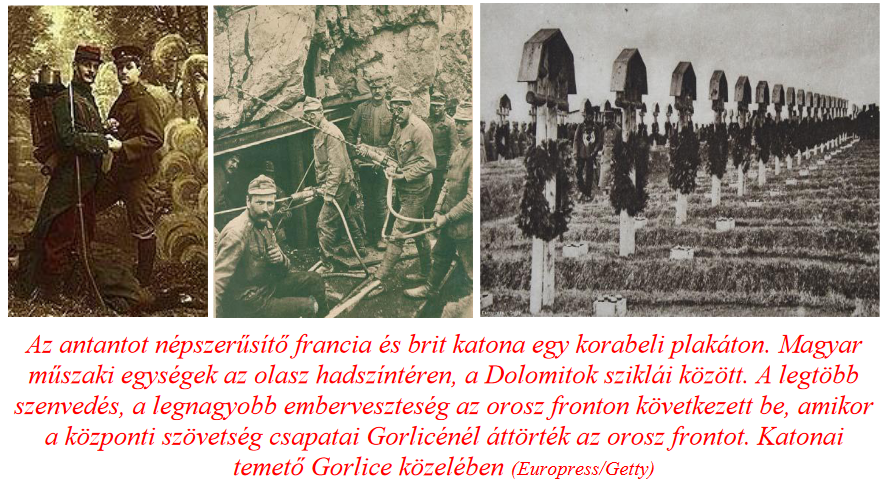
The term Entente refers to the 1904 alliance (a cordial agreement) between England and France, to which Russia joined in 1907. It should be noted that in the years before this, both England and Germany competed for the alliance of the Russian Empire. Finally, the kinship, cultural and economic good relations between Paris and St. Petersburg II. Russian Czar Miklós was made a friend and ally of the West. According to them, the memory of the Napoleonic carnage a hundred years ago is only a memory. They needed Russia. Were the Russians no longer so wild and terrifying?
However, the bloody war exhausted Russia by 1917, and the hinterland was in revolt. People were hungry, cold, and destitute. It was then that the Germans thought of sending Lenin home to Russia, who they thought was capable of starting a revolution. The great "subversive" studied the works of Marx and Engels on the island of Capri, Zurich, Germany and England, among others, which he then transferred to the Russian misery. An English diplomat wrote the apt sentence about the Germans who financially supported Lenin: "They used the most terrible weapon possible against Russia. Lenin was transported to Russia in a sealed wagon like an epidemic bacillus." I note, with the help of the Finnish railway comrades. Nágya, his wife, and Inessza, his lover, were with him in the closed wagon. That's how the three of them lived in the railway carriage, and later within the walls of the Kremlin.
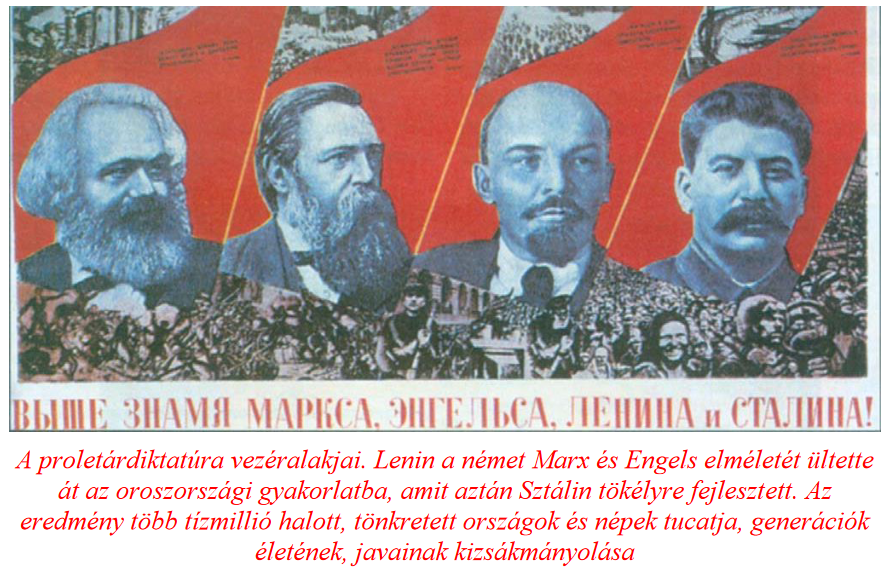
Russia withdrew from the war in 1917. The tsarist state ceased to exist, and the ruler and his entire family were literally exterminated, on Lenin's orders. (We are not far from the truth if we consider that the example of the French Revolution floated before the eyes of the Communists when they executed Louis XVI and the Queen. This was not the only example they took from the Jacobins.)
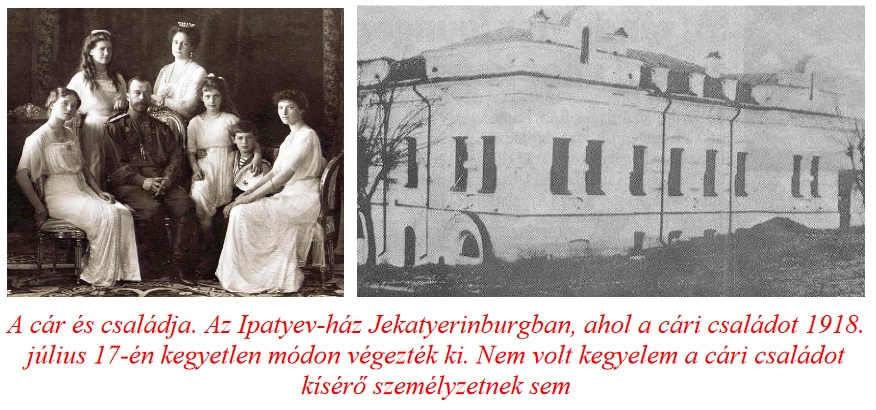
The role of the United States in world politics
Russia withdrew from the warring parties, but the USA, ready for action, immediately entered the war on the European battlefields. They brought democracy and supplies, but mainly weapons. On April 6, 1917, the United States declared war on the Central Powers, and this marked the beginning of America's activities governing world politics. It is worth quoting President Woodrow Wilson's address to Congress on April 2, 1917:
"... truth is more important than peace, and we must fight for the things that have always been closest to our hearts - democracy, the rights of those who submit to power to have a say in their own governance, the rights of small nations and for freedom and the universal rule of law [...] so that we can bring peace and security to all nations and finally make the world free.”
As if some pro-war Brussels "democrat" would say the panel text today. The result of the democracy of the Entente powers is well reflected in the map.
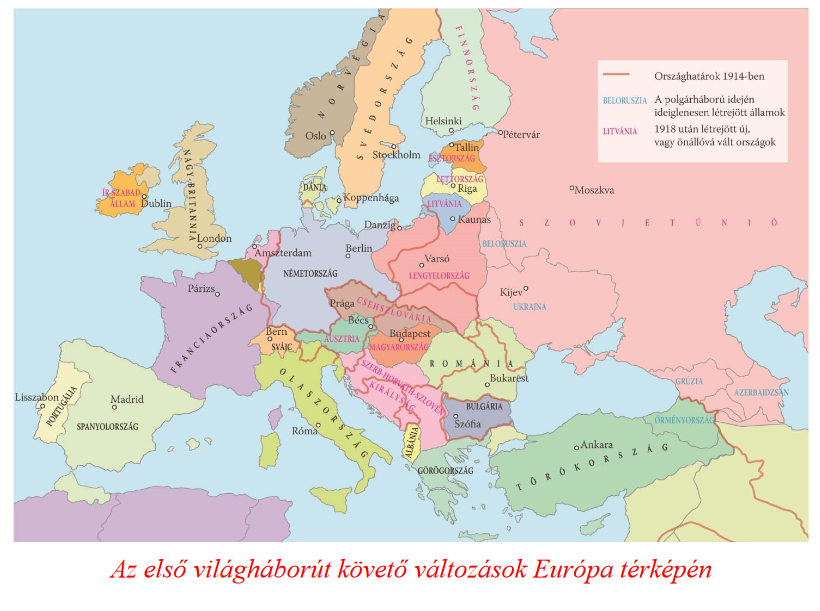 The Great War succeeded in creating the great Soviet Union, which to this day leaves its mark not only on the history of Central and Eastern Europe, but on the history of the entire world.
The Great War succeeded in creating the great Soviet Union, which to this day leaves its mark not only on the history of Central and Eastern Europe, but on the history of the entire world.
Then came the peace negotiations, to which the Hungarians, as the biggest losers of the war, were not even invited. Then in January 1920, the Hungarian delegation led by Albert Apponyi was able to go to Paris, but they achieved nothing apart from humiliation. They were tricked again, Trianon's sad plan was already ready by then.
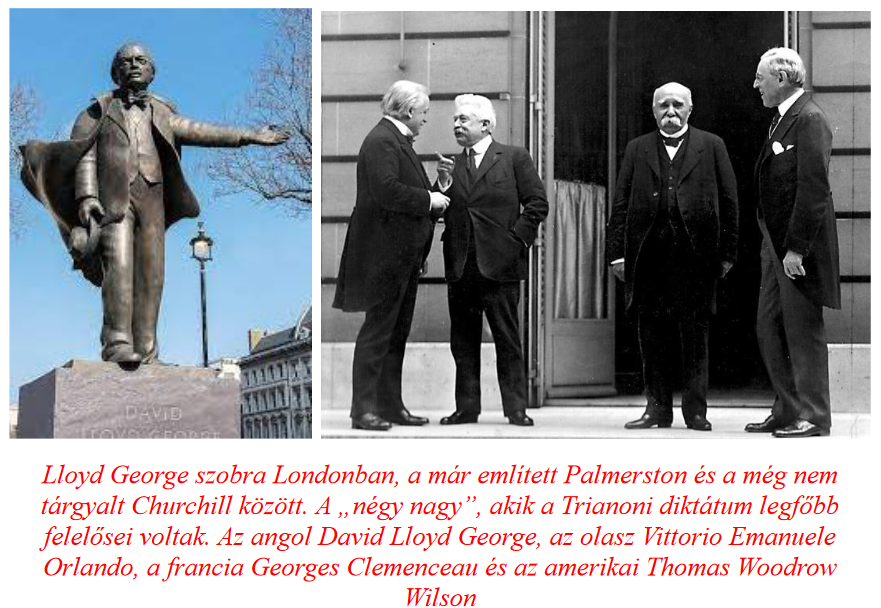
It should be noted that if any distinction can be made at all between the four politicians who made the judgment, then perhaps Orlando is the least guilty. We can say this because, due to his influence and the connections of the Italians to Hungarian history, it was not his fault that the Hungarians were plunged into such a tragedy. We mention the Hungarian-hater Clemenceau, the Tigris, as the main culprit, and we should not be excused from this. However, the real driving forces behind the Paris peace system were the Anglo-Saxons. Already in these years, and in later decades as well, it has been proven, and today it is undeniable, that Great Britain and, after the Second World War, the United States are the world's leading powers. The "autonomous" Wilson, who scored 14 points, and the "good-natured" Lloyd George, who suggested the resumption of negotiations, played a two-faced game. Even then, they imagined themselves as the masters of the world, and they politicized and waged war in the name of it.
Protagonists of the Second World War
In the First World War, both the German and the Russian superpowers weakened, and their political organization changed. Poland, Czechoslovakia, Romania, and Yugoslavia emerged between the two powers, and these countries became minions of French and Anglo-Saxon politics. However, Germany and the Soviet Union (Russia) became stronger again in two decades, but the region of Central Europe lacked a power like the Austro-Hungarian Monarchy.
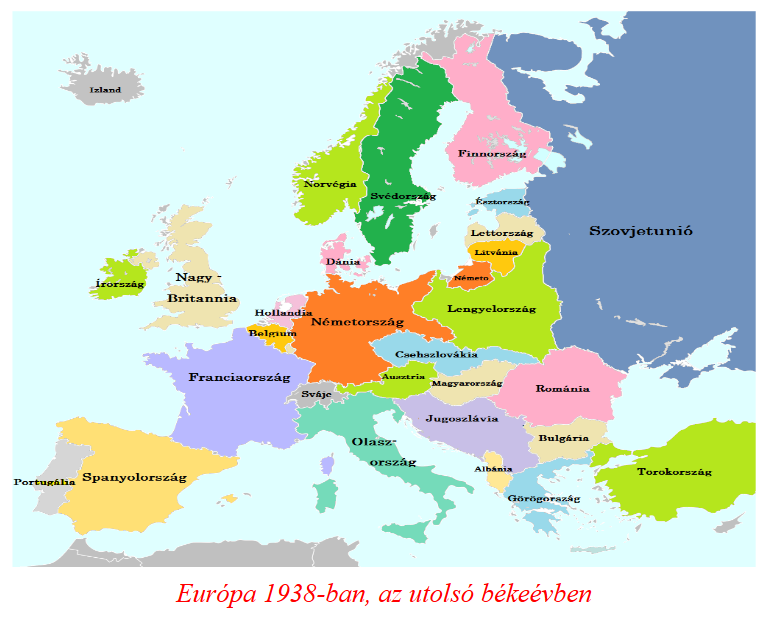
The beginning of the world war could be the armed conflict between Japan and China that broke out again in the summer of 1937. However, the official outbreak of World War II was on September 1, 1939, when Germany invaded Poland. About seventy countries took part in the World War, and more than seventy million people died. The world conflagration ended in Europe on May 8, 1945, and in Asia on September 2, 1945.
The opposing parties are the Axis Powers (Germany, Italy and Japan and the Accession Countries), and the Allies (United States, United Kingdom, Soviet Union) and the Accession States. Interestingly, the Western powers had no qualms about entering into an alliance with Tsarist Russia in World War I, or with Stalin's Soviet Union in World War II.
It is particularly surprising that they entered into an alliance with the communist superpower, which until then they had rejected as much as possible. Without going into detail about the horrors of the Second World War, it is worth quoting some images of the peace treaty here.
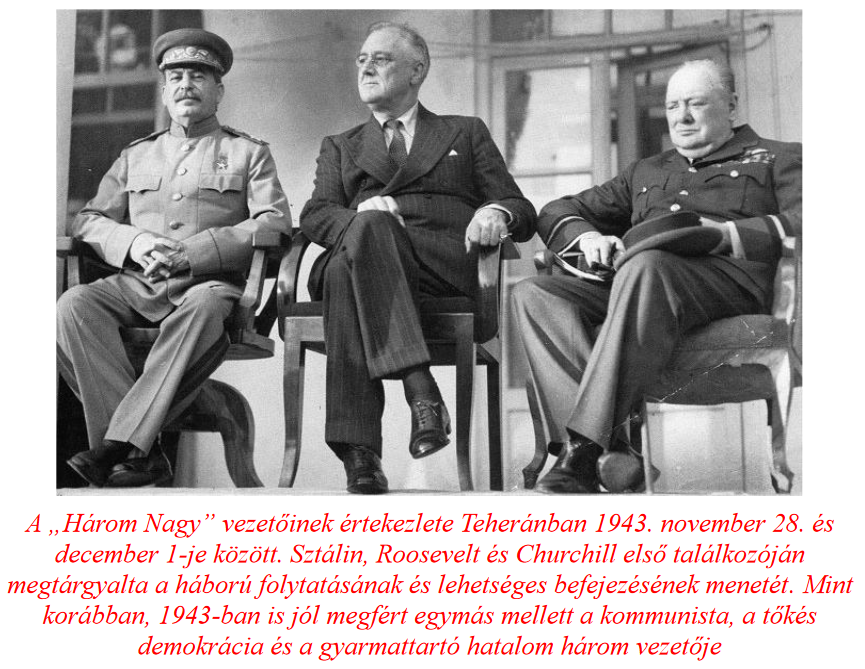
Among other things, they agreed that the second front would be opened in May 1944, and that it would not be in the Balkans (as Churchill wanted so that he could support the communist Tito), but on the French coast. The British plan to create a Bavarian-Austrian-Hungarian state confederation also failed - due to Stalin's opposition. They even discussed how Turkey could be won against Hitler. Stalin also promised to launch an attack on Hitler's allies at the same time as the landing. There was talk of attacking Japan, the borders of Poland, and the idea of creating the UN was already there. However, it was already known that the USA would take over the Anglo-Saxon power from the British Empire.
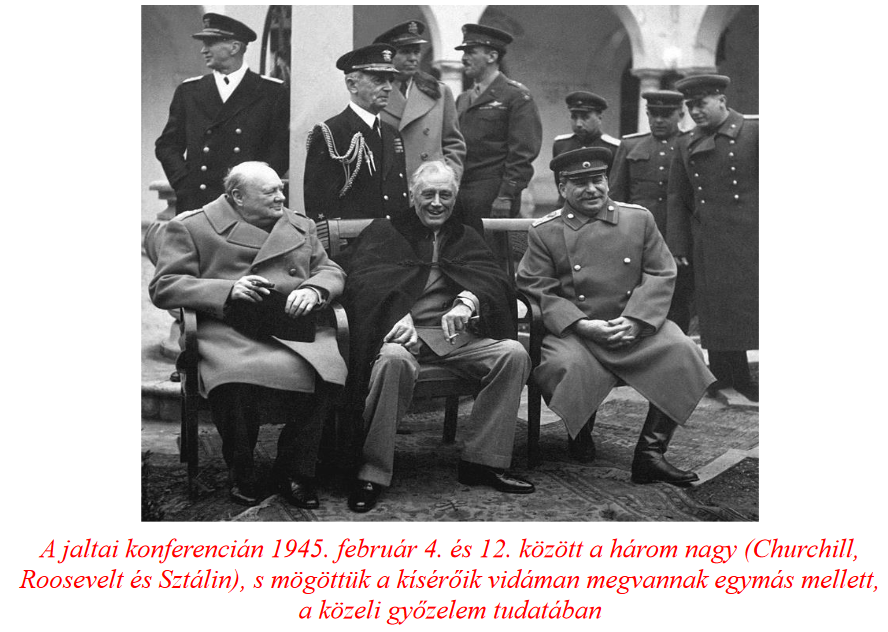
In Yalta, a beautiful resort on the Crimean peninsula, the two Anglo-Saxon leaders were guests of Stalin. The topic was the next steps to end the war and drawing a new image of Europe. Stalin committed to military operations against Japan three months after the end of the war. (The very democratic USA quickly dropped two atomic bombs on Japan so that there was no need for Soviet intervention.) Germany's occupation zones were established, the SZEB (Federal Control Committee) was established, and Poland's borders were agreed upon at the cost of great debate. Stalin could keep the eastern Polish territories, and what is important, Poland could be controlled by the friends of the Soviet comrades. They agreed to bring the main war criminals to justice.
Like Wilson's 14 Points in 1918, Roosevelt's Atlantic Charter was utopian when it spoke of a "solid and lasting peace." Due to its topicality, it is worth getting to know the history of the formation of the Polish border. The Curzon Line of World War I was used as a basis. (Demarcation line proposed by English diplomat Curson in 1920.) This was a betrayal of Poland, because about 300 km of the strip was given to the Ukrainians and Belarusians. Instead, the Polish border was shifted to the west, at the expense of Germany, where most Germans lived. That's when the mines of the future were dug.
The real crime of Yalta was the expulsion of the Swabians from Hungary, the Benes Decree, the deportation of the Sudeten Germans, and the resettlement of the Hungarians from the highlands.
Stalin could also say that the question of nationality is just a wagon issue. The English Churchill fully agreed with all this. Another nasty sentence from the two big men: The more Germans die, the easier the German settlement after the war will be. Two days after Yalta, the Anglo-Saxon planes bombed Dresden. Why? Only they knew that. (You can come up with all kinds of explanations for these, but these are the facts.)
What we Hungarians are most interested in is the percentage and territorial calculation between Churchill and Stalin on paper napkins. According to the legend, the two of them recorded on a piece of paper the location of the countries in the collision zone. What is very likely is that Churchill then threw the Eastern countries, including Hungary, into the Soviet sphere of interest for Stalin. (We should add that this incident did not take place in Yalta, but earlier, during the negotiations in Moscow in October 1944.) However, it does not change the essence.
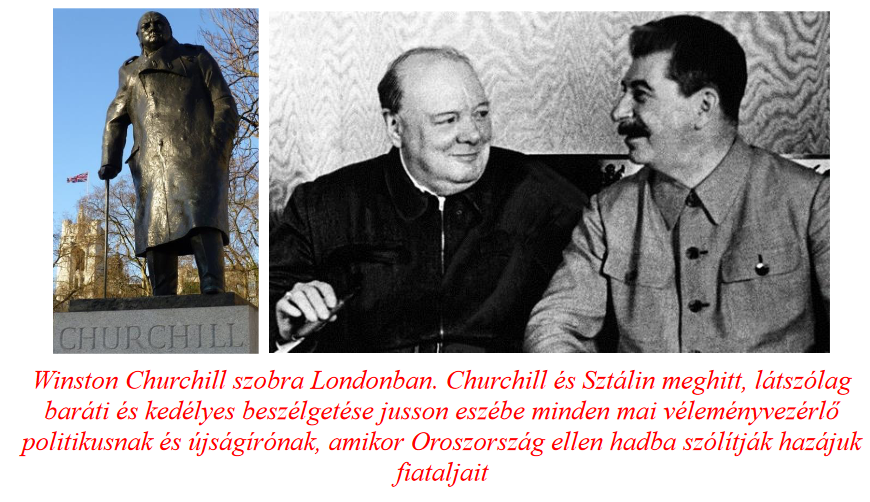
On October 9, 1944, Churchill took part in an official visit to Moscow. At the dinner, the British Prime Minister came up with the surprising proposal to agree on the occupation zones and countries. The "ticket agreement," as it is called, was the work of Churchill, who wrote the percentages on a napkin. According to one source, Bulgaria and Romania will be part of the Soviet zone 100%, Hungary and Yugoslavia 50% each, and Greece 10%. Stalin read the text and ticked them off one by one with an iron. This is why they say that the English sold Eastern Europe to Stalin. The tragedy of Moscow and Yalta is not the concession agreement and the other agreements, but the fact that Stalin had no intention of keeping them.
The cunning Stalin (originally named Yosif Vissarionovich Dzhugashvili) even deceived the English diplomats, led by Churchill. About Stalin, the head of the English delegation wrote: "He is a great man and his performance is truly impressive." And Churchill evaluated the communist dictator like this: "Poor Chamberlain thought he could trust Hitler. He was wrong. But I don't think I would be wrong about Stalin".
Let's also not forget what Pál Teleki said after his murder. Then Churchill declared that a chair would be left empty at the negotiating table after the war in honor of the Hungarian cause and Teleki's memory... There was no empty chair! They only paid enough attention to the case of the Hungarians that Trianon was strengthened, and in addition three more important settlements were taken from us in favor of glorious Czechoslovakia.
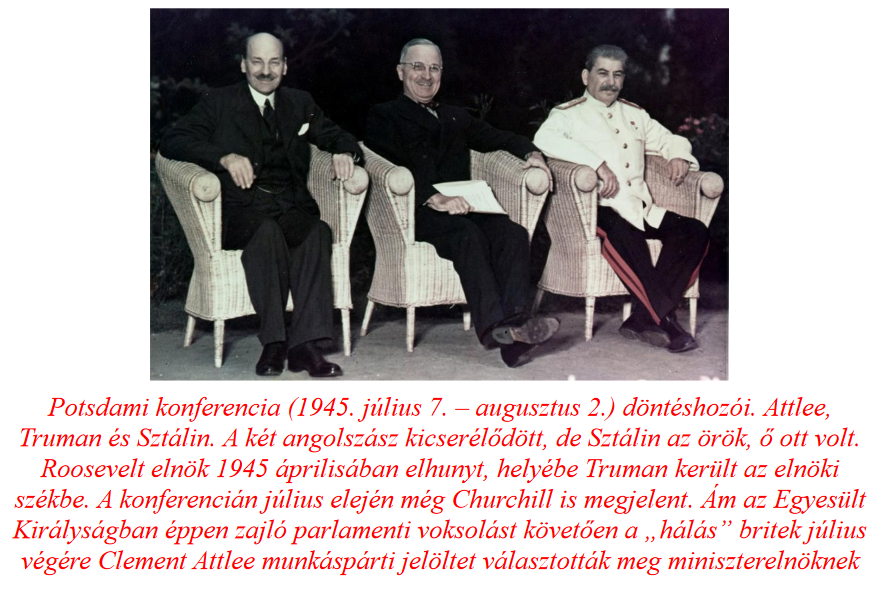
The fall of the two experienced Anglo-Saxon leaders had serious consequences for Europe. Control was completely in Stalin's hands. At first, Truman also made appreciative statements about Stalin, which he later wanted to say didn't happen. At the Potsdam conference, the German and Polish borders and the occupation zones were already specifically designated, and the sovereignty of Austria, which welcomed Hitler with a shower of flowers, was restored. Königsberg and its surroundings were annexed to the Soviet Union. Decisions were made on the UN membership of certain countries, the resettlement of Germans, the terms of peace treaties, the development of the atomic bomb, and the disarmament of Japan.
Russia (Soviet Union) in the 20-21. century
For today's endless "Russification", it doesn't hurt to know who the outstanding leaders of St. Petersburg and Moscow were in the last hundred years.
Lenin (originally named Vladimir Ilyich Ulyanov). On the paternal side, it can be traced back to Kalmyk, Kyrgyz, Tatar, and Russian ancestors. On his mother's side, Jewish, German, Swedish, and Russian blood flowed in his veins. The inventor of the Soviet system, the creator of the GULAG camps, the creator of the proletarian dictatorship. He died in 1924.
Stalin ("steel") is the cunning, cruel dictator who destroyed the Russians and other peoples living in the territory of the Soviet Union, and established communism with new death camps (GULAG). From 1945, the creator of the powerful personality cult was the Generalissimo of the Soviet Union. Stalin was of Ossetian descent on his father's side and Georgian on his mother's side. The parents did not even speak Russian, and Stalin only learned to speak the language well when he was twenty. He died in 1953.
Khrushchev (Nikita Sergeevich) followed Stalin's policies, relaxing the then unbearable dictatorship. His family can partly be traced back to Russian origins, but the first phase of his life connected him to the Ukrainians. He is the first secretary of the Soviet Communist Party (the supreme power), and in this capacity he handed over Crimea to Ukraine in 1954, which until then was Russian territory. (The relevant documents are still shrouded in obscurity today.) He also gave the order to suppress the Hungarian revolution of 1956 in blood.
Brezhnev (Leonid Ilyich) is the General Secretary of the CPSU, the first man of the Soviet Empire between 1964-1982. Unlike Lenin, Stalin, Khrushchev, he had limited abilities. He was a politician of the Cold War era incapable of renewal. He is undoubtedly of Ukrainian origin, but during the war years he declared himself more Russian.
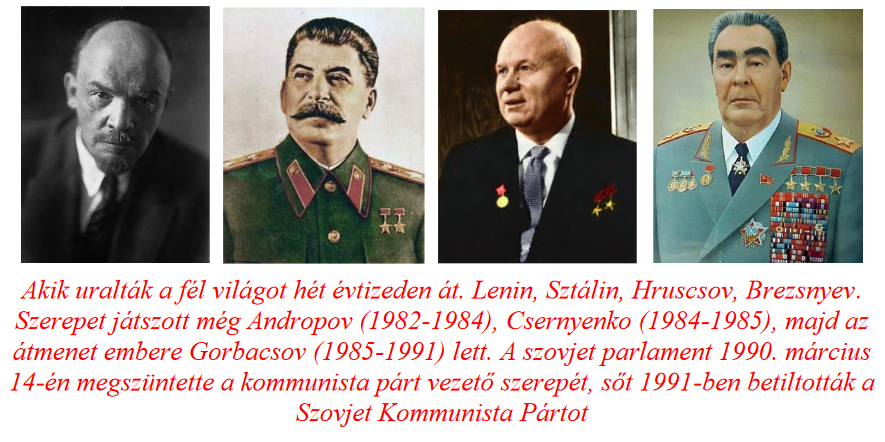
I note here that most people logically think of the Ukrainian front as the 1st, 2nd, 3rd and 4th Ukrainian Fronts, which launched the final attack against the Hitler machine in 1944, exclusively Ukrainian they consisted of warriors. This was not the case. The 2nd Ukrainian Front played a leading role in the invasion of Hungary. However, these fronts were units of the Red Army just like the other fronts. The four fronts got their name from the fact that they were created on the territory of Ukraine. Of course, this assumes that Ukrainian soldiers made up the bulk of the army. The conquerors committed horrible acts among the Hungarian, but especially the German civilian population. I won't elaborate.
To conclude the topic, we must talk about 1956. The "very democratic" West and the "dark dictatorship" Soviet system, which became hostile during the Cold War, found each other on this issue in the same way as in 1849, 1920, or 1947. The Eisenhower administration found itself in a difficult situation when the Polish and Hungarian revolutions broke out in October 1956. After all, the possibility of liberating the captive nations that has been voiced for years has arrived. The events in Poland were quickly resolved, the United States did not have to do anything, "order" was restored, and the policy of appeasement did not greatly burden the balance between the two great powers. The uprising in Budapest was no longer so simple. The US leadership was aware that Moscow would rigidly refrain from making any concessions in the matter of the vassal states. However, if he leaves Hungary alone - which in itself meant nothing to him - then what about the rest of the world, the many, many countries that still believed in the American promises.
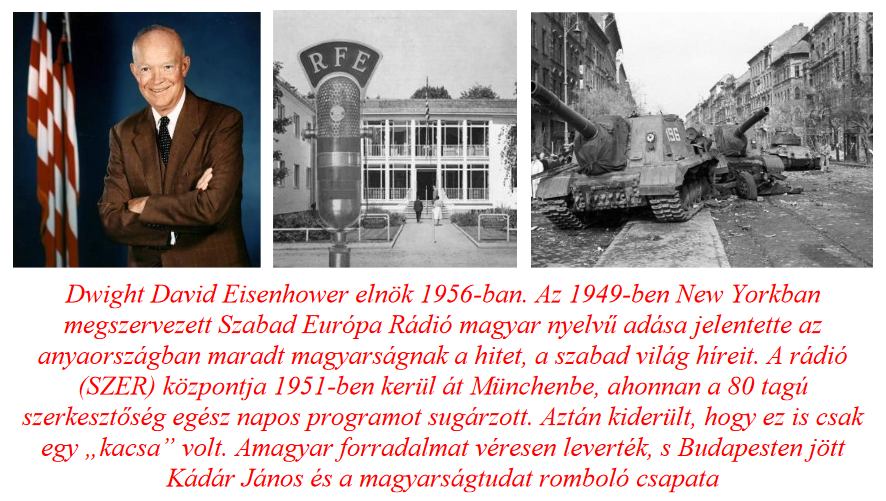
The American leadership chose the path that served only the interests of the USA. He brought the Hungarian case to the UN and put the issue on the agenda of the Security Council. On the one hand, this showed that they would not let the peoples fighting for their freedom to themselves, on the other hand, it had no significance due to the Soviet veto. Meanwhile, the détente process between the USA and the Soviet Union continued.
The breakup of the Soviet Union
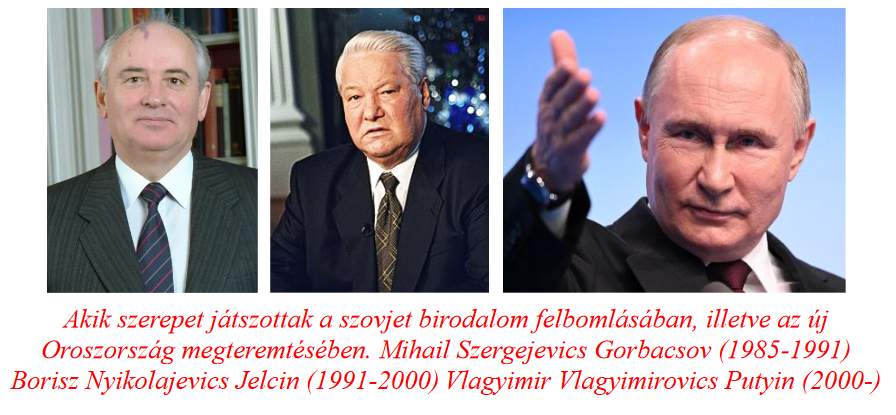
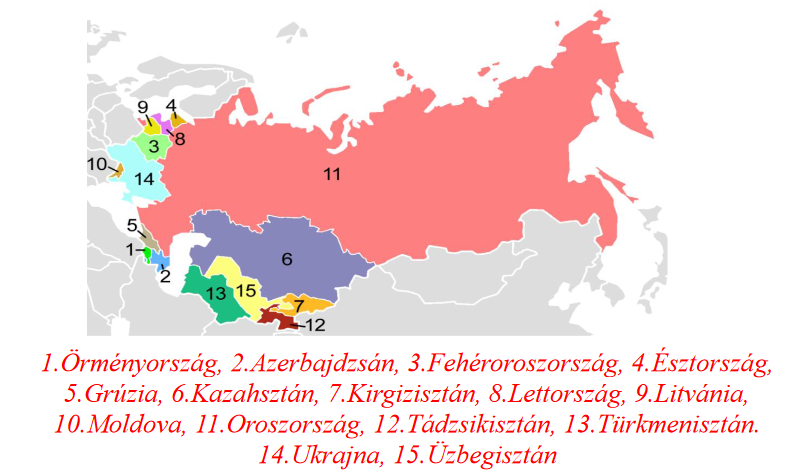
Leaders in a world war situation and presidents today
Whatever the negotiating parties in Tehran, Yalta and Potsdam did, which caused a lot of trouble for the world, and the results of which we are still experiencing today. Nevertheless, they were credible men, credible politicians for their own people. Now let's think about whether today's US President (Biden), whose condition others have already said everything about, and today's British Prime Minister (Rishi Sunak), who despite his Indian origin was still the best choice, will sit on such a bench in the form of a statue. Because in six years, conservative prime ministers David Cameron, Theresa May, Boris Johnson, Liz Truss have done everything to discredit the United Kingdom, which once lived better days.
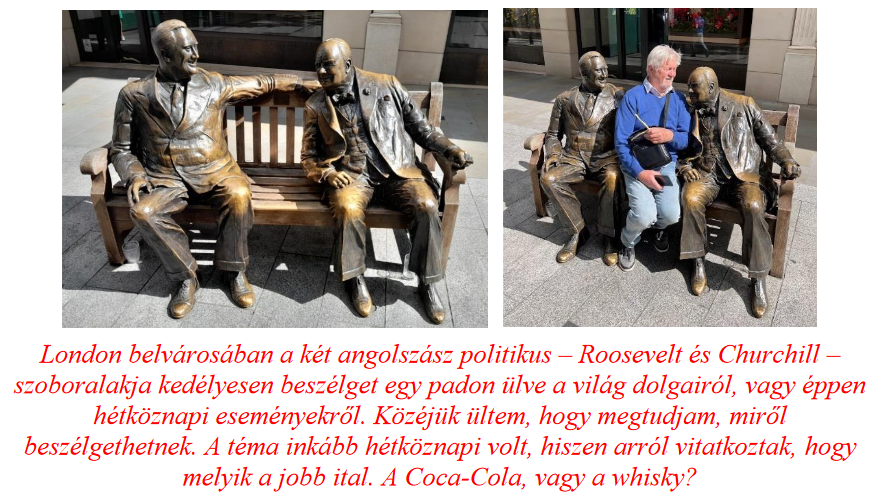
Since 1945, the United States has gone to war in more than 25 countries 30 (thirty) times and brought peace and democracy everywhere, at the cost of the destruction of nearly ten million people. In return, he brought profit, to which the sale of weapons contributed to a large extent. And Ukraine is not even included in this line.
Korea (1950–1953) (Korean War) • Guatemala (1954, 1960, 1967-1969) • Indonesia (1958) • Cuba (1959–1961) • Congo (1964) • Laos (1964–1973) • Vietnam (1961– 1973) • Cambodia (1969–1970) • Grenada (1983) • Lebanon (1983, 1984) (Lebanon and Syria) • Libya (1986) • El Salvador (1980) • Nicaragua (1980) • Iran (1987) • Panama ( 1989) • Iraq (1991 (Gulf War), 1991-2003 (joint American and British forces) Iraq (2003-2015) • Kuwait (1991) • Somalia (1993) (2007, 2008, 2011) • Bosnia (1994, 1995) • Sudan (1998) • Afghanistan (1998)-(2001–2015) • Serbia and Montenegro (1999) • Yemen (2002, 2009, 2011) • Pakistan (2007–2015) • Libya (2011, 2015) • Syria (2014) , 2015).
Author: Ferenc Bánhegyi
Cover image: Fortepan
The parts of the series published so far can be read here: 1., 2., 3., 4., 5., 6., 7., 8., 9., 10., 11., 12., 13., 14., 15., 16., 17., 18., 19., 20., 21., 22., 23., 24,, 25., 26., 27., 28., 29/1.,29/2., 30., 31., 32., 33., 34., 35., 36., 37., 38., 39., 40., 41., 42., 43., 44., 45., 46., 47., 48., 49., 50., 51., 52., 53., 54., 55., 56., 57., 58., 59., 60., 61. 62., 63., 64., 65.

